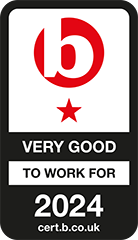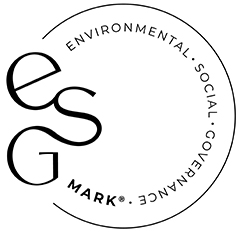Our monthly round-up of the latest VAT news.
A ruling needs all the detail: Non-Statutory Clearance
A business wrote to HMRC (HMC&E at that point) seeking a Non-Statutory Clearance (NSC) on the VAT treatment of pilot training services.
NSCs are used when there is uncertainty in the legislation as to the correct VAT treatment. In recent years HMRC seems to be less willing to engage with taxpayers and their advisers even through NSCs.
The NSC was issued in 2009 setting out that UK VAT was not due on the training service provision. There were then several VAT visits which did not raise the issue of the VAT treatment.
However, HMRC reviewed the VAT treatment and the result of this was an assessment in excess of £10m for ‘underdeclared’ VAT.
The taxpayer appealed saying the NSC gave them ‘legitimate expectation’ that the VAT treatment was correct. The result of HMRC’s investigations was that a main issue of the programme relating to the funding of the pilots was not disclosed to HMRC.
The Tribunal noted that the documents from HMRC should have shown that they were under a ‘misapprehension’ which was fundamental to establishing the VAT treatment.
The Tribunal ruled that “In circumstances where the ruling was obtained by omitting material facts and giving a materially inaccurate impression of the overall arrangement, the decision is in no way unfair or otherwise an abuse of power.” So, the assessment stood.
The initiation of HMRC’s review was a similar provider who sought a similar VAT treatment through NSC. When this was refused, HMRC decided to revisit their original decision.
It’s also a good example of why, when seeking a ruling from HMRC, that all the cards are on the table.
New rules for EU imports – is Flanders leading the way?
A group of local and regional authorities and private enterprises based mainly on Flanders (Northern Belgium) has this month announced the launch of an application called ‘Gateway2Britain’.
Although marketed as making trade between Great Britain and Flanders “as frictionless as possible” the app is designed to make the required paperwork processes digitised and streamlined. However, it does show that authorities are looking at ways to minimise the impact of more stringent requirements for moving goods into and out of the single market.
This refers to the introduction of changes to checks on phytosanitary goods (most agricultural products) into Great Britain from 1 October 2023, which HMRC is looking to deal with by introducing a new Target Operating Model. However, this is still a proposal, with the latest guidance stating that it is the Government’s ‘firm intention’ to proceed with the 1 October milestone for health certificates for:
- “medium risk animal products, such as meat, dairy, fish and high risk food and feed of non-animal origin imported from the EU, and phytosanitary certificates for phytosanitary goods imported from the EU.”
Businesses that import such goods from the EU need to prepare for the new regime to enable the goods to be cleared at the point of import as soon as possible. Whilst discussions with all parties involved in the supply chain (including freight businesses) are recommended, the lack of information about what processes will be made (and so what steps need to be taken) is not helpful.
Intending To Trade is an Economic Activity
In the initial months of the pandemic in the UK, Personal Protective Equipment (PPE) was in short supply.
A number of individuals with access to 3D printers formed a ‘Crowd CIC’ called 3D to produce face masks for health workers.
At that time, it was illegal to sell PPE without accreditation. Therefore, through public donations and contributions, the CIC donated the PPE to various care homes, NHS Trusts, etc. In their submission the business stated:
“3D was not aware of, and had no means of learning about, the fact that (in its view) the Government chose to restrict NHS contracts for relevant goods to participants associated in various ways with senior government ministers and MPs (the VIP lane).”
In fact, the CIC did not get accreditation until September 2020. By that time the Government had found ‘other sources’ for PPE, so the CIC never sold any of the masks produced. [This paragraph has been heavily redacted by our lawyers.]
The CIC had been registered for VAT and made a claim for VAT on costs on the basis of intending to trade. HMRC rejected this claim. The First Tier Tribunal ruled that it was the intention of the CIC to sell the goods which was a business activity in itself. Indeed, the fact that it never sold any goods was not relevant. (Regular readers may recall a case last year where a business undertook tests on new cars for free to generate future tests that the car manufacturer would pay for.) However, the Tribunal ruled that as the initial costs were incurred with the CIC knowing that the goods would initially be given away to prove the technical and logistical abilities of the business. Whilst the VAT incurred in seeking accreditation were fully recoverable; the remaining input tax would need to be apportioned between the altruistic (non-business) and Business purposes.
The Tribunal based its ruling on the ‘old’ Lord Fisher test rather than HMRC’s updated definition of what constitutes a business.
Time to Pay not in time
A business appealed against a default surcharge for their 01/22 VAT return which, due to late payment, resulted in a default surcharge of 2% of the net VAT due.
The taxpayer’s main contention was that they had contacted HMRC on 10 March 2022 to arrange a time to pay schedule.
The due date for the 01/22 VAT return is, of course, 7 March 2022. This proved to be the decisive point.
The taxpayer, who represented themselves at the Tribunal, stated that they understood the due date to be the 10th (when the Direct Debit payment is normally taken from their bank account). When the taxpayer called HMRC about the subsequent default surcharge notification they said they were advised to appeal.
The appeal, at some length, goes on to consider other issues such as the cash flow scenario of the taxpayer at the time, etc.; but it seems to me that if the taxpayer had taken professional advice, they could have spared themselves the time/cost/trauma of an unsuccessful appeal. Whilst the amount of the surcharge was an unpleasant £1,936, this has no doubt been dwarfed by the costs incurred by the taxpayer.
This case highlights that even being given bad news by a professional adviser can prevent further costs being incurred.
Get in touch
If you would like to discuss any of these VAT updates in more detail, please contact Ian Marrow via ian.marrow@rickardluckin.co.uk
To receive future copies of our VAT newsletter, or any of our other newsletters, directly to your inbox, please register your interest via our preference centre.
If you have any questions about the above, or would like more information specific to your circumstances, please enter your email address below and we will get in touch:













